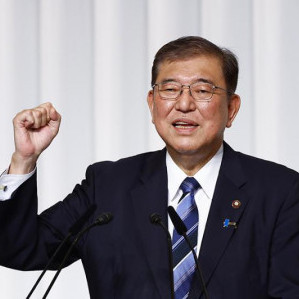Sooner than in three months Ukraine for the first time will take up the presidency of the Organization for Security and Cooperation in Europe (OSCE) “We see in what good and responsible manner Ukraine approaches its organization of work in 2013. We see that the country’s leadership is interested that the OSCE agenda becomes widespread. We also understand that Ukraine, as presiding country, makes it its mission to assert itself in Europe, in particular, as well as to demonstrate the ability to lead the way and set priorities for the major European organization,” so OSCE Secretary General, Lamberto Zannier commented on the situation, at a meeting with students of Moscow State University of Foreign Affairs (MGIMO), which was held in the framework of the official visit to Russia.
Based on the logic of “asserting itself in Europe” through the presidency of the OSCE, in 2010, such an act was carried out by Kazakhstan, in 2011 – by Lithuania, in 2013, respectively, it will be Ukraine to assert itself, and in 2014 Serbia will hold the presidency of the OSCE, being a splinter of the former socialist world too. Thus, allowing the young ambitions to rule in the European field, Europe administers the newcomers communion to its spirit and flesh. One can not but see in this passage, the reflection of the policy of forcing back the socialist world’s former satellites from the Russian way and influence.
A similar direct question in this respect was put by Lamberto Zannier: “Can it be considered a tendency that in recent years the post-Soviet countries have been presiding over the OSCE?”
“Why only the post-Soviet? Also the countries of former Yugoslavia,” the OSCE Secretary General remarked hinting at Serbia. And to bring to naught the question of the post-Soviet tendency in the choice of presiding country, Lamberto Zannier called it “easy”.
“The thing, he explained, is that one of the strengths of the OSCE is respect for all members of the organization. We try to provide each of the member countries the opportunity to feel to really play the first role, not a back-seat one. We do it in the first place, through trust - trusting the management of the organization.”
Zannier did not look convincing, because the tendency is obvious - in the presidency a sequence of quite specific countries alternates. OSCE Secretary General shared his observation: “I noticed that some not only post-Soviet countries but also those of the former Yugoslavia initially behaved in the OSCE somewhat embarrassing. Moreover, I remember that in the late 90s/early 2000s, the Central Asian countries, assessing their participation in the OSCE, asked the only question: "And what is our place in the organization? What shall we be there?” And in the course of time I began to notice that these countries gradually find themselves in a team of OSCE. Today, by the way, they are already 56. The turning point, in my opinion, was the presidency of Kazakhstan in 2010. This country has shown that it shares our views and purposes.”
Here it was impossible to not automatically remember that, giving praise to Kazakhstan, the OSCE has never fully recognized as legitimate none of the elections which were held in this country. Every time the OSCE observers severely criticize the election process in Kazakhstan, but it “objects” defending its rightness.
Zannier noted also Lithuania that in 2011 demonstrated an excellent presidency. "We hope the Ukrainians too will make every effort to promote the OSCE’s ideas and plans and will strengthen the organization’s role as a forum for dialogue and platform for action, and will not miss an opportunity to consolidate its positions in Europe,” said the head of the OSCE.
He evaluated the experience of the post-Soviet countries and those of the same former Yugoslavia as “unique” and said that “this experience is encouraged when solving the problems the OSCE deals with. Their range is very wide - from election monitoring and human rights protection – to control over the spread of weapons and cyber security issues.”
“The OSCE is distinguished from other security organizations because, firstly, when making decisions, we listen to the opinion of each member country and really strive for reaching a consensus,” said Zannier. It must be noted that the OSCE Secretary General was not accurate because such principles as “parity and consensus” form the basis of at least one more international organization dealing with security issues, namely, the SCO.
Lamberto Zannier also called the second difference between the OSCE and NATO, the EU and other alliances uniting the countries with a common approach to security assurance or with a unified vision of integration. “Our organization includes the states, which may have different foreign policies, objectives and even interests. We provide a platform for dialogue between these, above all, politically different countries, who may have fundamentally different views on ensuring their national security. Of course, because of the difference in national interests of the OSCE member states, it is not easy to conduct a multilateral dialogue,” said Zannier and added that “perhaps it is one of the reasons why the decisions taken in the framework of the OSCE, are primarily of political and advisory nature not of legal one.”
During a visit to Russia Lamberto Zannier gave an interview to RT TV channel. In Alexander Gurnov’s Spotlight program the issue of human rights was discussed. The OSCE activities in this direction in Central Asian countries is known. In answer to the anchorperson’s question if the OSCE is engaged in similar issues in other countries, the secretary general said that recently the issue of death penalty has been raised “in a country on the other side of the ocean”. Alexander Gurnov hereto noticed not without humor: “When you call the U.S. “the country on the other side of the ocean” you suggest me an analogy to Harry Potter book. Remember, there was a hero “whose name was not allowed to be called”










